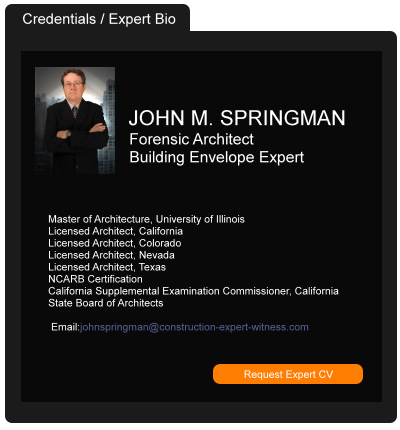California Rejects Judgments By Confession Pursuant to Civil Code Section 1132
May 08, 2023 —
Drew M. Jorgenson & Louis "Dutch" Schotemeyer - Newmeyer DillionThe Elimination of Judgment by Confession
Following in the footsteps of Massachusetts and Florida, California recently updated California Code of Civil Procedure section 1132 which renders judgments by confession unenforceable and inadmissible in any superior court, effective January 1, 2023. The bar is not retroactive, so judgments by confession obtained or entered before January 1, 2023 are still valid. Moving forward, consider the following.
What is a Judgment By Confession?
A judgment by confession, also known as a confession of judgment or "cognovit" clause, is a mechanism by which a debtor agrees that a creditor may summarily obtain a legal judgment against that debtor and enforce it in the event of the debtor's breach of contract or default. In other words, it is a private admission by a debtor that they are liable for a debt without the need for a trial, and consequently, agree to forfeit very important rights. Most importantly, parties agreeing to such clauses are waiving rights such as the right to notice of the judgment and the right to assert defenses against the creditor or third party's claims. Historically, without any judicial involvement, these types of out-of-court judgments would be enforceable.
Reprinted courtesy of
Drew M. Jorgenson, Newmeyer Dillion and
Louis "Dutch" Schotemeyer, Newmeyer Dillion
Mr. Jorgenson may be contacted at drew.jorgenson@ndlf.com
Mr. Schotemeyer may be contacted at dutch.schotemeyer@ndlf.com
Read the court decisionRead the full story...Reprinted courtesy of
President Trump’s “Buy American, Hire American” Executive Order and the Construction Industry
June 05, 2017 —
Garret Murai - California Construction Law BlogOn April 18, 2017, President Trump signed Executive Order No. 13788 implementing his “Buy American, Hire American” campaign promise.
Federal construction contractors familiar with “Buy American” clauses in federal contracts under the Federal Acquisition Regulations (FAR)–which require materials to be manufactured in the United States (or, depending on the clause, not manufactured in certain countries) unless a waiver is obtained–have waited anxiously to see what Trump’s “Buy American, Hire American” promise would mean for them.
Well . . . as it turns out, not much, at least not yet.
Read the court decisionRead the full story...Reprinted courtesy of
Garret Murai, Wendel Rosen Black & Dean LLPMr. Murai may be contacted at
gmurai@wendel.com
An Expert’s Qualifications are Important
January 28, 2019 —
David Adelstein - Florida Construction Legal UpdatesAn expert’s qualifications are important. Please remember this the next time you retain an expert to analyze documents or data and render an opinion based on that information. An expert must be qualified to render an opinion. Otherwise the expert will not be allowed to render the opinion you may be looking for or need for purposes of trial, as discussed below.
A recent personal injury case, White v. Ring Power Corp., 43 Fla.L.Weekly D2729a (Fla. 3d 2018), involved a crane operator that became severely injured when operating a leased crane. The case proceeded to trial against only the equipment lessor of the crane based on the plaintiff’s contention that there were deficiencies with the crane. The plaintiff intended on using expert witnesses to interpret the crane’s load movement indicator (referred to as LMI) and render opinions that the LMI data showed prior overloads of the crane which resulted in the injury to the operator of the crane.
Read the court decisionRead the full story...Reprinted courtesy of
David Adelstein, Kirwin NorrisMr. Adelstein may be contacted at
dma@kirwinnorris.com
United States Supreme Court Limits Class Arbitration
May 13, 2019 —
Jeffrey K. Brown & Raymond J. Nhan - Payne & FearsOn April 24, 2019, the United States Supreme Court held that the Federal Arbitration Act ("FAA") bars orders requiring class arbitration when an agreement is ambiguous about the availability of such a procedure. Lamps Plus v. Varela, 587 U.S. __ , 2019 WL 1780275, (2019). In Lamps Plus, the Court clarified a 2010 case in which it held that a court may not compel arbitration on a class-wide basis when an agreement is silent on the availability of class arbitration. Stolt-Nielsen S.A. v. Animal Feeds Int'l Corp., 559 U.S. 662, 687 (2012).
In Lamps Plus, a 5-4 decision authored by Chief Justice Roberts, the Court explained that because the FAA envisions the use of traditional individualized arbitration, a party cannot be forced under the FAA to submit to class arbitration unless the parties explicitly agreed to do so. Because class arbitration does not share the benefits of traditional arbitration -- lower costs, greater efficiency and speed, and the parties' choice of a neutral -- the FAA requires more than an "ambiguous" agreement to show that the parties bound themselves to arbitrate on a class-wide basis. Unlike individualized arbitration, or even traditional class actions, class arbitration raises serious due process concerns because absent class members will have limited judicial review. Based on these critical differences between individual and class arbitration, the Court reiterated in Lamps Plus that "courts may not infer consent to participate in class arbitration absent an affirmative contractual basis for concluding that the party agreed to do so."
Reprinted courtesy of
Jeffrey K. Brown, Payne & Fears and
Raymond J. Nhan, Payne & Fears
Mr. Brown may be contacted at jkb@paynefears.com
Mr. Nhan may be contacted at rjn@paynefears.com
Read the court decisionRead the full story...Reprinted courtesy of
Wilke Fleury Attorneys Awarded Sacramento Business Journal’s Best of the Bar
September 30, 2019 —
Dan Egan, Steve Williamson & David Frenznick - Wilke FleuryWilke Fleury congratulates attorneys Dan Egan, Steve Williamson and David Frenznick on their inclusion in the Sacramento Business Journal 2019 Best of the Bar!
The Sacramento Business Journal annually honors the region’s top attorneys after a rigorous process of selection. To be awarded the Best of the Bar, attorneys are nominated by fellow attorneys and then vetted by a panel of peers.
Reprinted courtesy of Wilke Fleury attorneys
Dan Egan,
Steven J. Williamson and
David A. Frenznick
Mr. Egan may be contacted at degan@wilkefleury.com
Mr. Williamson may be contacted at swilliamson@wilkefleury.com
Mr. Frenznick may be contacted at dfrenznick@wilkefleury.com
Read the court decisionRead the full story...Reprinted courtesy of
Does Article 2 of the Uniform Commercial Code Impact Your Construction Project?
November 07, 2022 —
Chris Cazenave - ConsensusDocsThe Uniform Commercial Code (UCC) is a set of statutes governing commercial transactions. Every state has adopted the UCC or some version of it. Understanding when and how the UCC applies to construction contracts is important because it can affect the agreement’s terms.
Article 2 of the UCC applies to the sales of goods, which the UCC defines very broadly to mean “all things (including specialty manufactured goods) which are movable . . . other than money in which the price is to be paid . . . .” UCC § 2-105. For the construction industry, UCC Article 2 governs most, if not all, purchases of materials and equipment installed or incorporated into the project. As a result, contractors and subcontractors should be familiar with the circumstances under which Article 2 may apply and how it may affect the project.
This article provides a brief overview of when Article 2 may affect your construction project and why it matters. The article also generally covers the UCC’s potential effects on the applicable statute of limitations, implied warranties, and when the obligation to make the payment arises.
Read the court decisionRead the full story...Reprinted courtesy of
Chris Cazenave, Jones Walker LLP (ConsensusDocs)Mr. Cazenave may be contacted at
ccazenave@joneswalker.com
School Board Settles Construction Defect Suit
October 22, 2013 —
CDJ STAFFThe Lafayette Parish School Board has settled a claim that water intrusion was caused by faulty design and construction. The board initially sued the contractor and the design firms, but under Louisiana law, the suit came too late to sue the contractor, so Ratcliff Construction was dropped from the suit.
The two design firms, Corne-Lemaire Group, which did the architectural design for the school, and Beaullieu & Associates, which did the engineering, also sought to be removed from the suit due to the statute of limitations, but an appeals court concluded that the law at the time of construction did not allow this.
Details of the settlement were not released. Tim Basden, the attorney for the school board acknowledged that “the principal problems were related to construction, but the lawsuit wasn’t filed timely.” According to Basden neither design firm conceded “liability or malpractice of any kind.”
Read the court decisionRead the full story...Reprinted courtesy of
Effective July 1, 2022, Contractors Will be Liable for their Subcontractor’s Failure to Pay its Employees’ Wages and Benefits
July 25, 2022 —
Edward O. Pacer & David J. Scriven-Young - Peckar & AbramsonOn June 10, 2022, Illinois Governor J.B. Pritzker signed two House Bills that amend the Illinois Wage Payment & Collections Act, 820 ILCS 115 et. seq. (“Wage Act”), to provide greater protection for individuals working in the construction trades against wage theft in a defined class of projects. Pursuant to this new law, every general contractor, construction manager, or “primary contractor,” working on the projects included in the Bill’s purview will be liable for wages that have not been paid by a subcontractor or lower-tier subcontractor on any contract entered into after July 1, 2022, together with unpaid fringe benefits plus to attorneys’ fees and costs that are incurred by the employee in bringing an action under the Wage Act.
These amendments to the Wage Act apply to a primary contractor engaged in “erection, construction, alteration, or repair of a building structure, or other private work.” However, there are important limitations to the amendment’s applicability. The amendment does not apply to projects under contract with state or local government, or to general contractors that are parties to a collective bargaining agreement on a project where the work is being performed. Additionally, the amendment does not apply to primary contractors who are doing work with a value of less than $20,000, or work that involves only the altering or repairing of an existing single-family dwelling or single residential unit in a multi-unit building.
Reprinted courtesy of
Edward O. Pacer, Peckar & Abramson and
David J. Scriven-Young, Peckar & Abramson
Mr. Pacer may be contacted at epacer@pecklaw.com
Mr. Scriven-Young may be contacted at dscriven-young@pecklaw.com
Read the court decisionRead the full story...Reprinted courtesy of


































































